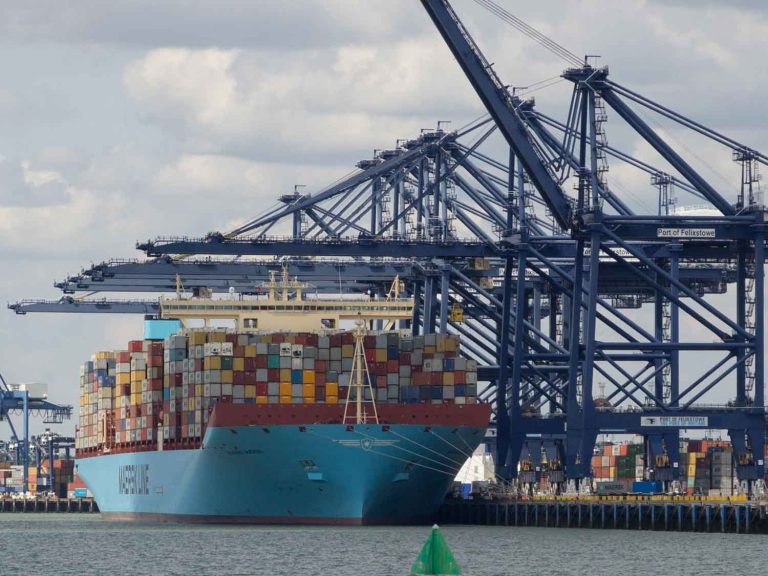
Date:
Maersk leave Felixstowe as shipping Alliances prepare for launch
The container shipping industry is undergoing significant realignments, with three major alliances and MSC operating independently, restructuring their networks to enhance efficiency and reliability.
These alliance changes represent a major shift in container shipping, affecting global trade routes and port operations, with the major carriers adapting to evolving market needs, regulatory pressures, and cost management requirements.
In a shock move announced last week Gemini Cooperation partners, Maersk and Hapag-Lloyd have chosen London Gateway as their primary UK hub for Asia-Europe services, replacing the Port of Felixstowe. Choosing ports is crucial for the ambition of Maersk and Hapag-Lloyd to achieve 90% schedule reliability.
Through Gemini they aim to reduce network complexity by implementing single-operator loops and fewer port calls per service, thereby enhancing reliability and speed for customers. The Gemini Cooperation will deploy a fleet of approximately 290 vessels, with Maersk contributing 60% and Hapag-Lloyd 40%, totalling a combined capacity of 3.4 million TEU.
The dissolution of the 2M Alliance between Maersk and MSC, effective January 2025, has prompted these realignments. Additionally, Hapag-Lloyd’s departure from THE Alliance has led to the formation of the Premier Alliance, comprising Ocean Network Express (ONE), Yang Ming, and HMM.
2025 Container shipping alliances
Gemini Cooperation
Formation: A new alliance starting 1st February, 2025.
Members:
Maersk
Hapag-Lloyd
Key Features:
– Focus on high reliability (target: 90% service reliability).
– Simplified loops and reduced port calls to optimize efficiency.
– Major trade lanes: Asia-Europe, Trans-Pacific, and North-South trades.
– UK hub: London Gateway (replacing Felixstowe).
Premier Alliance
Formation: Starts February 2025; a five-year agreement.
Members:
Ocean Network Express
HMM
Yang Ming
Key Features:
– Coverage of East-West trade lanes, including Asia-Europe, Asia-North America, and Trans-Pacific routes.
– Aims to improve operational efficiency and cost-sharing among smaller carriers compared to the larger players.
– While the exact number of vessels allocated to the Premier Alliance is not specified, the extensive service network suggests a significant fleet deployment.
Ocean Alliance
Formation: Originally formed in 2017; extended until 2032.
Members:
COSCO
OOCL
CMA CGM
Evergreen Marine Corporation
Key Features:
– Operates 330 vessels with a total capacity of 3.8 million TEUs.
– Major trade routes: Asia-Europe, Asia-North America, and intra-Asia.
– Focuses on stability and long-term collaboration.
MSC Standalone Network
Mediterranean Shipping Company, the world’s largest carrier by fleet size.
Key Features:
– Operates independently without alliances.
– Plans to maintain flexibility and control over service offerings.
– Network includes extensive global coverage, particularly on Asia-Europe and Trans-Pacific lanes.
– Fleet of approximately 850 container vessels (6 million TEU), with 99 vessels on order, which would add nearly 1.2 million TEU to its capacity.
Legacy Alliances (Dissolved):
2M Alliance
Members: Maersk and MSC.
THE Alliance
Members: ONE, HMM, Yang Ming (until January 2025).
– Transitioning into the Premier Alliance.
Metro negotiate contracts and volume agreements with a broad portfolio of carriers, including MSC and across the alliances, to offer our shippers the widest range of service offerings, port-pairings and rates.
Our bespoke solutions uniquely reflect our customers requirements and expectations. For further information please EMAIL Chief Commercial Officer, Andy Smith, who would be delighted to review your situation.
